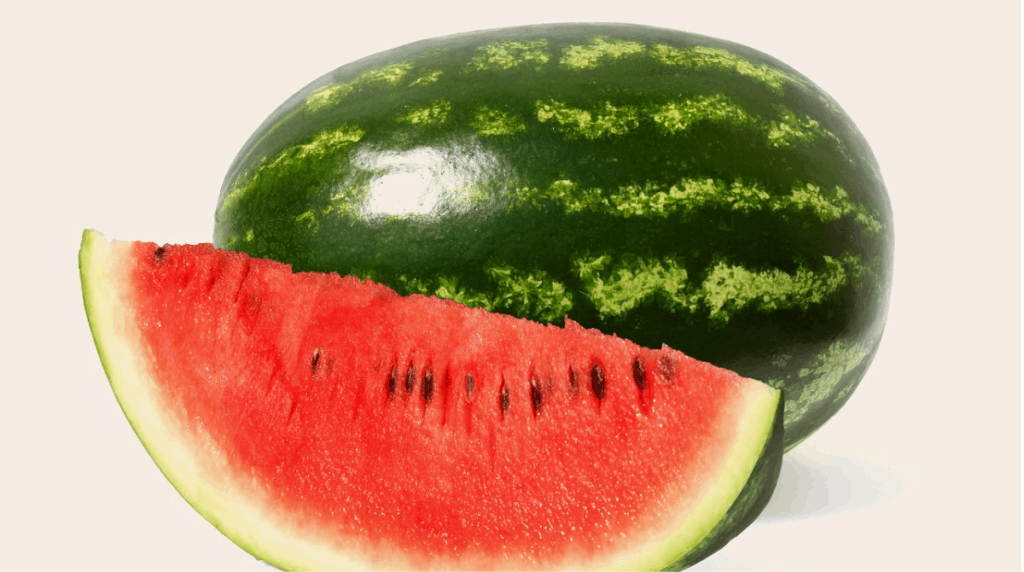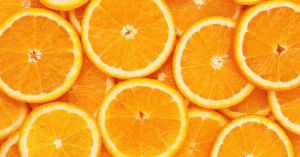Watermelon is a very large and heavy round or oval fruit.
There are about 50 species of watermelon, including baby watermelon (anguria baby), which is a small size variety.
Watermelon is one of the favourite summer fruits: refreshing, hydrating and nutritious.
Watermelons ripen for eating from June to September.
Watermelon has an extremely low calorie content: 100 g of watermelon has only about 16 calories.
Watermelon is a healthy fruit to eat fresh, cut in slices or in a fruit salad.
It is a plant species of the Cucurbitaceae family, originally from tropical Africa, and the fruit is a false berry (pepo).
The rind is hard, smooth and quite thin, green in colour, mottled or striped in light green, white or yellow; the flesh is red and full of seeds.
Watermelon helps to detoxify and purify the body; it is very filling and helps to reintegrate the minerals lost by the body in the heat.
The benefits of watermelon
The main health benefits of watermelon are:
- hydration and essential nutrients: watermelon is around 90% water and contains important electrolytes. It is a source of minerals and vitamins and allows you to recover the mineral salts lost through sweating
- antioxidants: the vitamin C contained in watermelon is essential for the immune system and helps to maintain your defences. It helps to detoxify the body and protects cells from damage from free radicals
- strengthening bones: watermelon contains lycopene, which is important for bone health. Lycopene also lowers oxidative stress that reduces the activity of osteoblast and osteoclast cells
- diuretic: watermelon is natural diuretic that increases the flow of urine, protects the kidneys and helps the liver process ammonia
- reduce fat: watermelon contains citrulline, which helps reduce to reduce the accumulation of fat in the cells. Citrulline is an amino acid which is converted into arginine that leads the cells to produce less fatty tissue
- anti-inflammatory: thanks to the presence of lycopene, an antioxidant with an anti-inflammatory action, watermelon helps to prevent cancer and promotes heart health
- aphrodisiac: the citrulline contained in watermelon is an amino acid that acts as a vasodilator, thereby stimulating sexual desire
- keeping skin healthy: thanks to its content of beta-carotene, watermelon helps to delay skin aging and keeps skin elastic. Its vitamin C content assures the production of collagen, which is essential for healthy skin.

Properties and nutrients of Watermelon
Watermelon is a rich source of minerals, in particular:
- Potassium: watermelon is a good source of potassium, a mineral that helps to lower blood pressure, as it promotes the elimination of excess fluids, counteracting water retention, and regulates the heartbeat.
- Phosphorus: phosphorus performs various important functions in the body. It regulates the pH, is part of the mineral fraction of bones and teeth, is a constituent of proteins and enzymes, and participates in the activation of some vitamins and in cell repair processes
- Magnesium: this mineral transmits nerve impulses and helps to maintain a health heartbeat and regulate muscle contractions.
- Vitamin C: also called ascorbic acid, Vitamin C has a powerful antioxidant action and so helps to counter the action of free radicals, preventing cellular aging and the formation of cancerous cells. It also stimulates the immune system, protecting against colds and flu.
- Beta-carotene: this pigment with antioxidant action gives a typical yellow-orange colour to plants. It is the precursor of Vitamin A which performs numerous functions in our body as it is essential for cell growth and differentiation, intervening in embryonic development, helps to protect vision, is essential for bone growth and helps to maintain healthy skin and hair.
- Lycopene: this carotenoid is responsible for the red colour of fruit such as tomatoes, watermelon and red fruits. It has a strong antioxidant activity, which makes it effective in the prevention of cancer and in the fight against aging. It also has an anti-inflammatory action, inhibits the formation of atherosclerotic plaques and protects the eyes from degeneration that occurs with advancing age;
- Citrulline: this is a non-essential amino acid that can be synthesized by the body. It prevents hypertension and protects the cardiovascular system as it is able to balance pressure and keep arterial walls elastic. This amino acid is also used for erectile dysfunction, as it helps to achieve and maintain an erection by ensuring the necessary concentration of nitric oxide.
Watermelon flesh is made up of over 90% water with a good quantity of sugars, above all fructose and vitamins A, C, B and B6.
High in water and low in calories, watermelon is one of the best summer fruits to help with weight loss.


